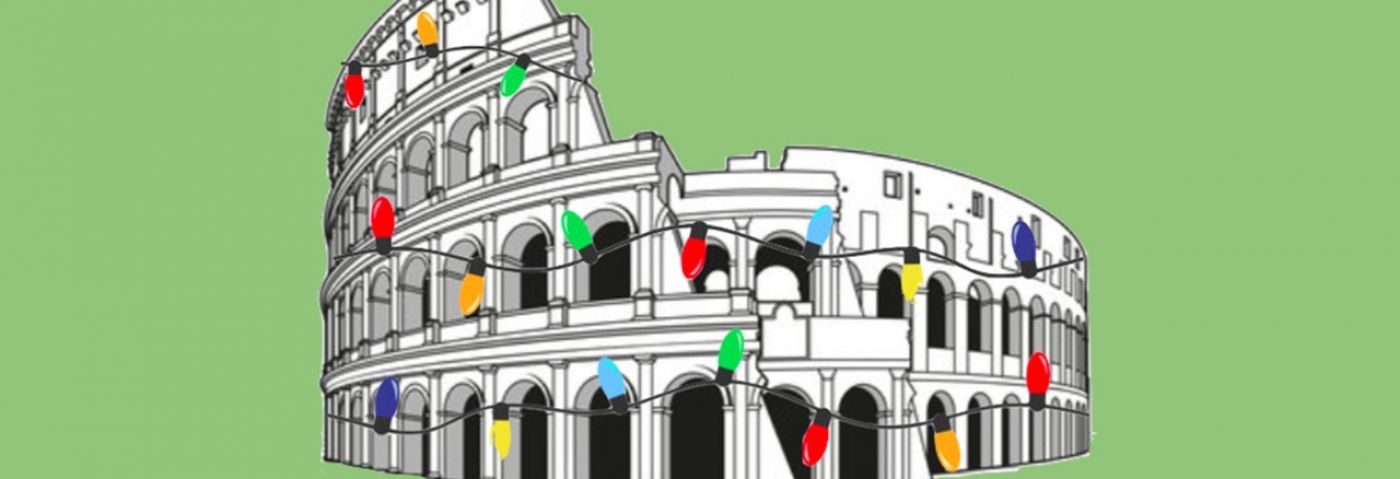Blog post by Rosie Hill
In Roman times, the harsh British winter was split in half by the festival of Saturnalia, the midwinter date of the Roman Julian Calendar. As the days get colder and the nights draw in, our modern Christmas is something to look forward to in the bleaker winter months. Currently celebrated as the day of Jesus Christ’s birth, this was not always the purpose of the holiday. Beginning as a farmer’s religious festival to encourage and pray for the harvest of the coming year, it’s popularity grew and spread throughout the Roman Empire. This holiday break involved drinking, dancing, decorations, gifts and entertainment with family and neighbours.
The festival of Saturnalia gave us the lighting of candles (then called Cerei) and the idea of bringing evergreen tree boughs and branches indoors, thus our modern Christmas tree. In particular, the hiding of a silver sixpence in the Christmas pudding can be traced back to Roman times.
The lucky Roman who discovered the hidden coin in the cake was then pronounced the lord or lady of the festival (Saturnalicius princeps), whose job it was to cause mischief and entertainment. The Roman invasion introduced Ancient Britain to these holiday traditions and now these familiar celebrations have filtered down throughout history, remaining long after the Christian conversion and even the collapse of the Ancient Roman Empire.
The specific date of the 25th of December is believed to be an amalgamation of Saturnalia and the Emperor Constantine’s favoured holiday – Dies Natalis Solis Invicti or ‘birth day of the unconquered sun’. In 312AD when Constantine I moved the entire religion from the pantheon of Roman gods to Christianity it would appear that these old celebrations co-existed alongside the new faith of the Empire.
 With the vast variety of Roman cults and household deities that spanned the conquered lands, including Britain, Saturnalia celebrations and its accompanying welcome of “Io Saturnalia” have become one singular celebration.
With the vast variety of Roman cults and household deities that spanned the conquered lands, including Britain, Saturnalia celebrations and its accompanying welcome of “Io Saturnalia” have become one singular celebration.
The legacy of this Roman celebration has continued in various forms in many places. Every place the Romans had conquered or traded with has traces of this festival. Even the Saint Nicholas (Nicholas of Myra) that gave us Santa Claus and Christmas Stockings, lived through Rome’s conversion to Christianity. As it stands today, our Christmas has traditions based upon celebration, gift giving and relaxed social hierarchies from all throughout history.
The Romans saw the festival as a religious celebration, as well as a seasonal turning point that pivoted on the change from the coldest days of winter and the darkest nights, to the earliest beginning of the sowing season. It is comforting to realise that the traditions that have lasted down through the long centuries are those of celebration, generosity and hope in the midst of the bleakest time of the year.
Written by Rosie Hill – a placement volunteer at the Corinium Museum.










